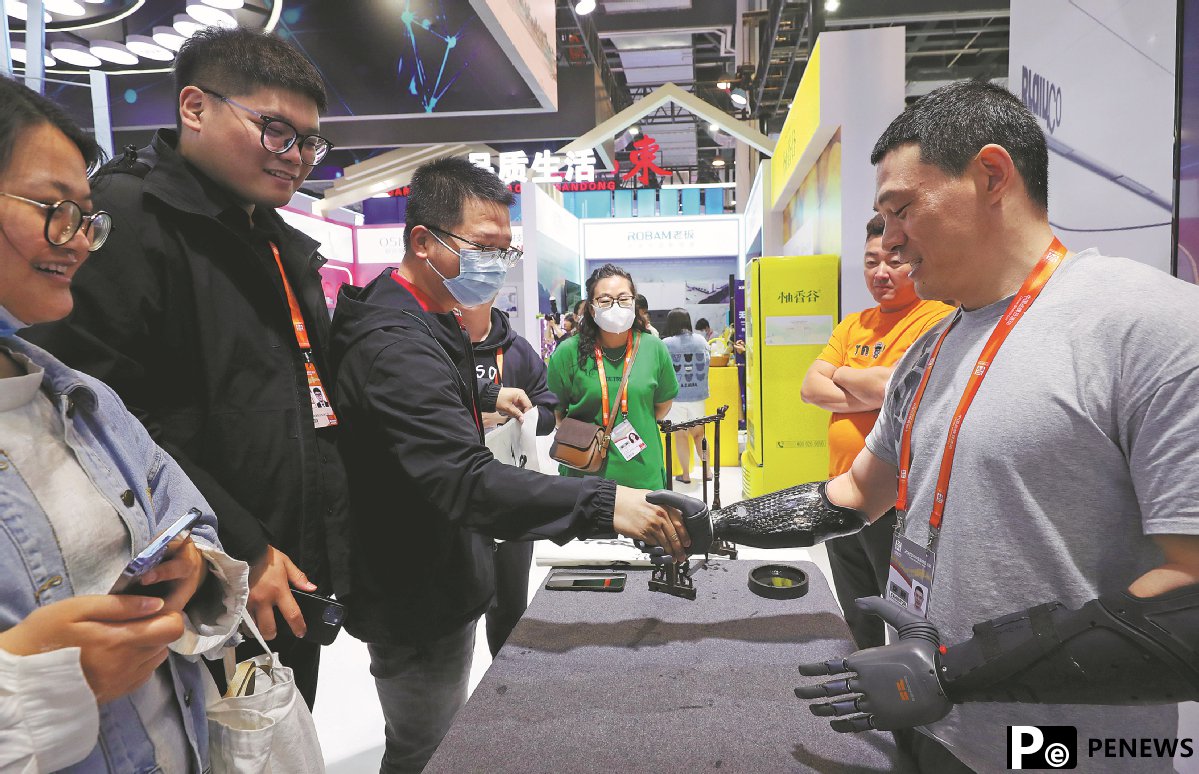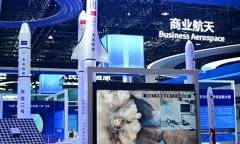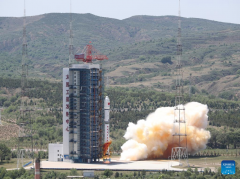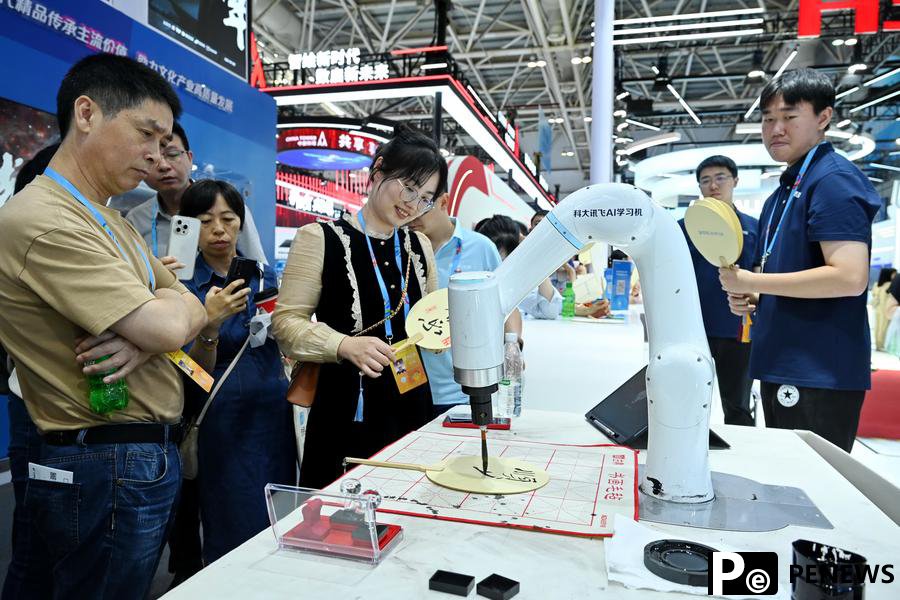Home>>
Brain-machine integration spawns global biz raceBy Cheng Yu (China Daily) 10:05, April 29, 2024

A visitor shakes hands with a staff member equipped with bionic hands enabled by brain-computer interface during an expo in Shanghai. FANG ZHE/XINHUA
In Hangzhou, Zhejiang province, a 38-year-old tech firm worker, who was dealt a cruel hand by life in the form of a car accident that took both his arms, is realizing life could also create marvels, by way of high-tech — in his case, an intelligent bionic hand that breathed new life into his residual limb. Using his mind, he controls the movement of his artificial fingers, grips and dips a brush into ink and elegantly inscribes four Chinese characters on a piece of paper.
The four Chinese characters mean luck and hope — many people would agree with the techie. The brain-computer interface, or BCI, technology, which controls the brain through mind and blurs the lines between humans and machines, promises technological innovation where the mind knows no bounds.
China, propelled by both the government and the private sector, is off the blocks in the global BCI race, trailing only the United States in certain segments. Chinese BCI firms are sharpening focus on both invasive and noninvasive niches of the emerging industry while the authorities concerned are seeking to get a grip on the formulation of regulatory rules.
The bionic hand was developed by BrainCo, a startup incubated at Harvard University and founded by Chinese engineer Han Bicheng. It was previously used by para-athlete Xu Jialing, the torch-bearer at the opening ceremony of the 4th Asian Para Games in Hangzhou last year.
BrainCo uses BCI technology in its bionic arm and couples it with a bracelet-like array of electrode sensors on one's arm, enabling users to use their mind to interpret electromyographic neural signals and next execute actions like clenching fists, opening palms or even giving a thumbs-up.
More than 100 Chinese companies like BrainCo are seeking to excel in the BCI industry. According to a report from the China Academy of Information and Communications Technology, a government think tank, the trend in China is similar to the one in the US.
The US and China together accounted for two-thirds of the total 500 representative BCI companies in the world as of the end of the first quarter, meaning that both countries have a "sound foundation" for leading the industry in the future, the report said.
Another report from the China Electronics Technology Standardization Institute stated that the sales revenue of the global BCI market is expected to reach $3.7 billion by 2027. By 2040, the corresponding figure for China's BCI industry is expected to exceed 120 billion yuan ($16.9 billion), including sales of related equipment, which are expected to exceed 50 billion yuan.
Gao Xiaorong, a tenured professor at Tsinghua University, said: "The ultimate goal of BCI development is to realize full integration of human brain and machine as one organic whole. As both China and the US are striving to drive progress in the BCI technology, the goal is likely to be achieved over the next 50 years."
Hexi Yujin, partner and senior vice-president of BrainCo, said: "It is such technological innovation that propels industrial innovation, thus ultimately transforming into new quality productive forces for the industry."
She said BrainCo has developed a series of BCI technology applications, including bionic hands, sleep aids and stress relievers that promote mindfulness, which have all entered mass production.
"We are the first in the industry to achieve mass production of BCI products, with over 100,000 units of high-precision single-item brain-machine interfaces, which means we are able to control the cost of such frontier technology and make it more accessible."
At the Zhongguancun Forum, a tech event in Beijing last week, the national capital released an action plan on BCI and proposed a series of targeted measures that aim to drive the development of the BCI industry.
BCI has also been listed as one of China's top 10 iconic products of future-oriented industries in an opinion-based list compiled by the Ministry of Industry and Information Technology and six other ministries last year.
The list made it clear that accelerated efforts will be made for breakthroughs in BCI, to develop key technologies and core devices such as BCI chips and neural models, a number of easy-to-use and safe BCI products, and encourage exploration of applications in fields such as medical rehabilitation, driverless driving and virtual reality.
In February, a Chinese clinical team from Xuanwu Hospital implanted a wireless processor into the brain of a paralyzed man. This helped him to recover his motor skills. Now, he can drink a bottle of water on his own — one of his many abilities that have been restored.










